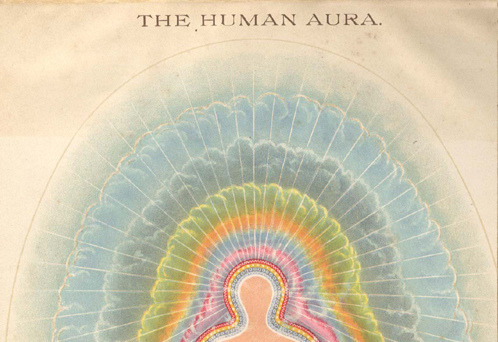
Wednesday, 1 June 2011
Saturday, 1 January 2011
Happy New Year
A new year’s resolution is a noteworthy concept—start off the year with a change for the better. So how did it devolve into a subconscious exercise in self-loathing? Lose 10 pounds! (Message to self: You’re fat.) Stop drinking caffeine! (You’re unhealthy.) Call Mom and Dad once a week! (You’re ungrateful.) Why not celebrate this new year by trading in your tired (and probably familiar) resolutions for a sankalpa instead?
POSITIVE POWER
A Sanskrit word, sankalpa means “will, purpose, or determination.” To make a sankalpa is to set an intention—it’s like a New Year’s resolution with a yogic twist. While a resolution often zeros in on a perceived negative aspect of ourselves (as in, “I want to lose weight, so no more chocolate chip cookies or ice cream or cheese”), a sankalpa explores what’s behind the thought or feeling (“I crave chocolate chip cookies or ice cream or cheese when I’m feeling stressed or sad. I will set an intention to become conscious of this craving and allow my feelings to arise and pass, rather than fill up on fats”).
EFFORT COUNTS
A sankalpa also praises the nobility of the effort rather than focusing on what you are doing wrong. “New Year’s resolutions leave me feeling guilty and mad at myself for not keeping them,” says Wendy McClellan, a yoga teacher in Louisville, Kentucky. So, last year, in a conscious effort to reject the resolution rut, she taught a special New Year’s Eve yoga class and encouraged students to look back and let go. Her intention, or sankalpa? To open her heart to new possibilities. “An intention has much more of a global sense than a resolution,” she says. “It helps me be softer with myself.” With a sankalpa, the self-loathing that comes from dwelling on past transgressions can begin to dissolve. In its place is an exercise in effort and surrender—create an intention and open yourself to the universe.
Sankalpa Setting
LOOK INWARD
For several days, set aside time to write in a journal and meditate. Mull over your typical resolutions. How do they make you feel? Anxious? Unsettled? Incomplete? Now contemplate how you would like to feel during the coming year. Is there any way you can reframe your results-oriented resolutions into something that will make this year’s journey more joyful and worthwhile?
REPHRASE IT
Create a short sentence or phrase for your sankalpa. Be careful not to set limitations based on fear. For example, instead of “May life bring me only happiness and joy this year” consider “May I be happy and open to what life brings me.”
BE FIRM BUT FAIR
Change doesn’t happen overnight. When you stray from the essence of your sankalpa, don’t berate yourself. Instead, gently remind yourself of your intention. But be firm in your resolve—it’s a good idea to incorporate your sankalpa into yoru daily routine. Use it as a mantra during pranayama or meditation practice; post it on your computer, phone, or mirror; or simply say it to yourself quietly before going to sleep. —C.G
(Source: yogajournal.com)
(via f*ckheadyoga)
Monday, 8 November 2010
Monday, 20 September 2010
There's a remedy for that?

In my practice I have noticed recently that there has been a recent influx with clients suffering with sleeping issues. Now sleep and the lack of it is not a new phenomenon by any stretch, however, it has I feel become so commonplace that it is almost considered normal.
But what seems to be most worrying is the consuming of prescribed and over the counter medications that are available to help allure perfect rest without addressing the underlying cause as to why one is not sleeping. It may seem like an obvious question and mostly the reasons are stress related. However how does one aim to help this in the long term, taking everyday medications doesn’t remove the cause, and in the long term can lead to dependency but also a state of grogginess of never feeling fully awake.
The reasons people turn to homeopathy is due to the fact they are fed up of not sleeping and are fed up of taking sleeping pills to do so. They have genuine interest in themselves as to why they are suffering and want to deal with the issue in a natural, non-toxic and holistic way that works with them and their symptoms as individuals.
I have one patient who had not slept for months and after taking his case in detail I prescribed the remedy, Coffea. After taking one dose, at the weekend as suggested, he slept for over 12hours in one night and throughout the weekend he continued to catch up until work on the Monday and I am happy to say he has continued to sleep very well since. This example shows whatever you may be suffering with does not necessarily require a course of tablets to be taken everyday just one indicated remedy and one dose in many cases depending on the underlying cause.
Friday, 2 July 2010
Tuesday, 8 June 2010
Hayfever Time

It's hayfever time again, and my phone has been off the hook with people looking for alternatives to the over the counter stuff you can get.
Homeopathy is a great alternative, which can help with the acute symptoms, but if you go and seek professional homeopathic advice outside of the hayfever season it can help alleviate or lessen an attack coming on the following year.
Here are some common remedies used for hayfever but remember, these are only a few there are many more as we are all individuals in our suffering.
Euphrasia: eyes inflamed, with profuse watering which seems to burn. Can be a thick discharge from eyes and feeling of pressure. Nose streaming. Better in the open air.
Allium cepa: watery discharge from the nose, can drip, leaving nose sore and raw. Watery eyes. Violent sneezing. Better in the open air.
Arsenicum: burning watery discharge from eyes and nose, with tickling building up to a sneeze. At its worst just after midnight. This patient will be restless and anxious.
Nux vom: sneezing fits, nose, eyes and face very irritated and hot. Itching extends to the larynx and trachea. Eyes light-sensitive. Irritated, impatient and snappy.
Lachesis: sneezing fits worse after sleep. Headache and dry stuffed sensation through the head, with red puffy face and sore nostrils and lips. The throat can also be sensitive, especially to pressure.

